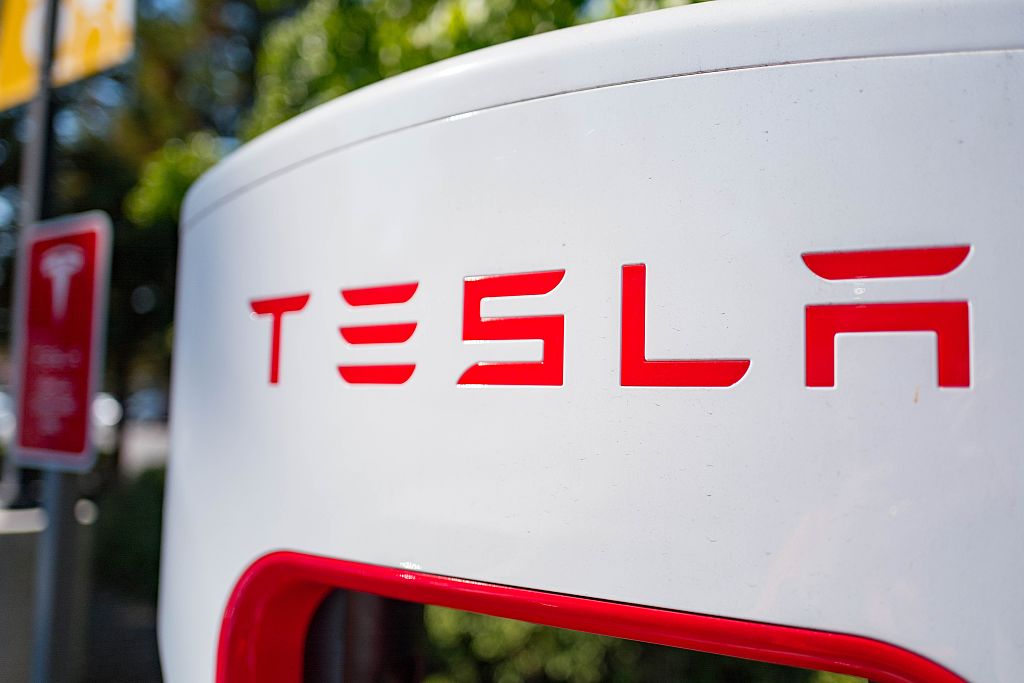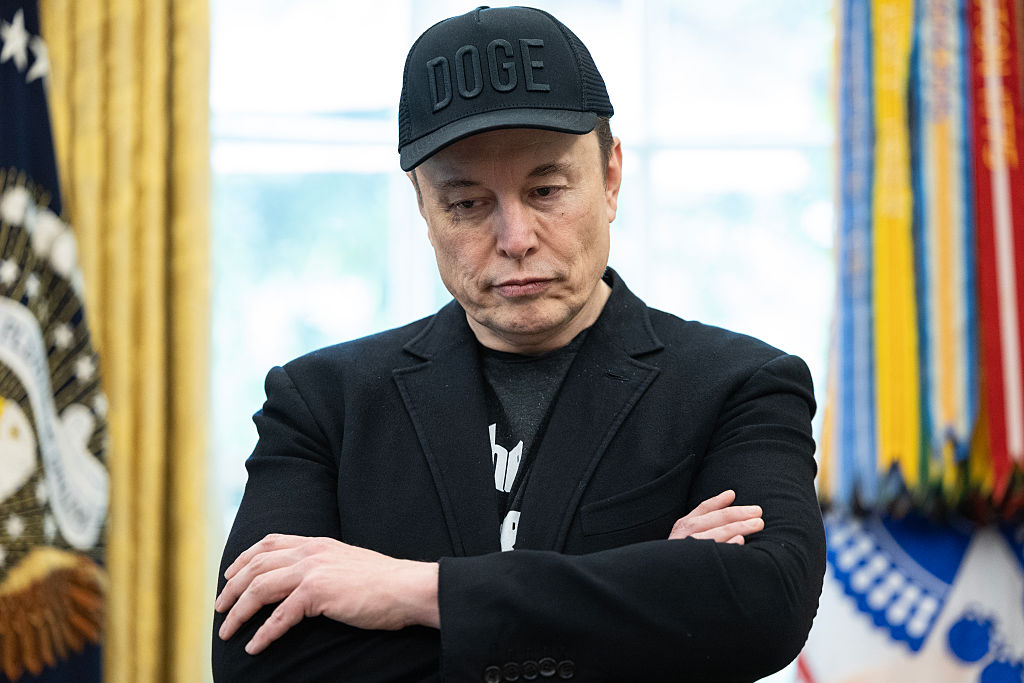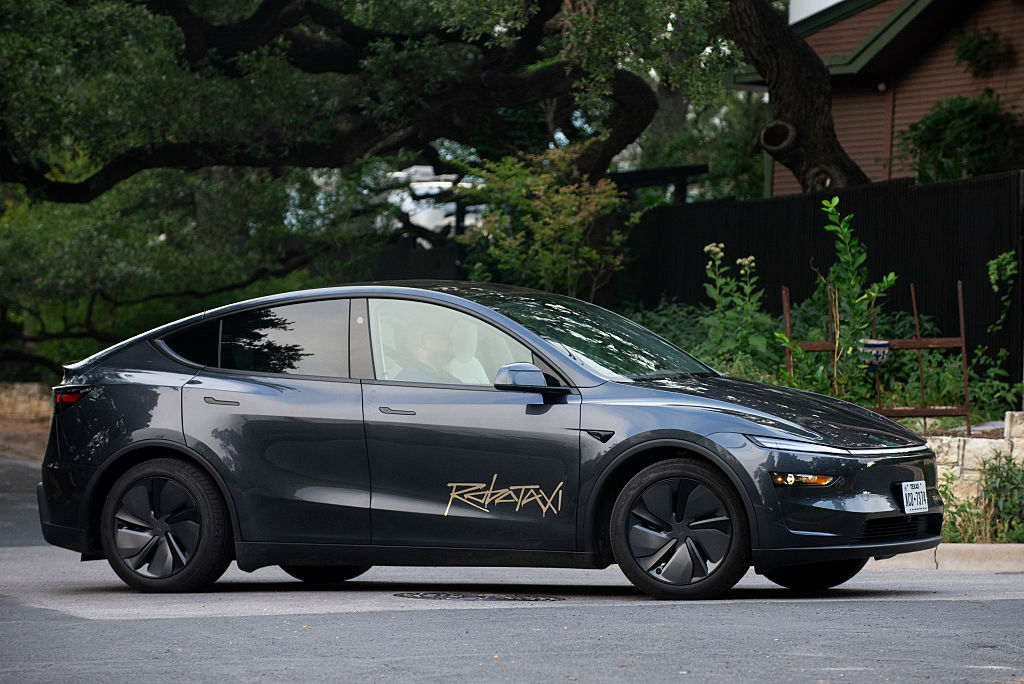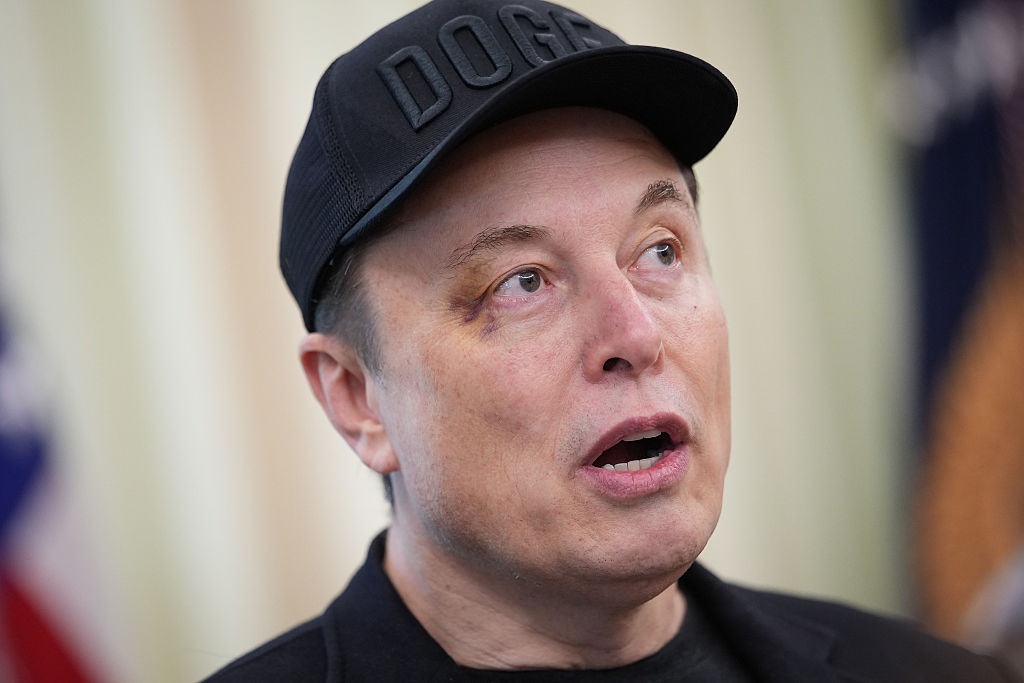Tesla seeks approval to supply electricity to UK homes – could it disrupt the energy market?
Tesla has applied for a license to supply UK households with electricity, but taking on the biggest providers could prove challenging


Get the latest financial news, insights and expert analysis from our award-winning MoneyWeek team, to help you understand what really matters when it comes to your finances.
You are now subscribed
Your newsletter sign-up was successful
Want to add more newsletters?

Twice daily
MoneyWeek
Get the latest financial news, insights and expert analysis from our award-winning MoneyWeek team, to help you understand what really matters when it comes to your finances.

Four times a week
Look After My Bills
Sign up to our free money-saving newsletter, filled with the latest news and expert advice to help you find the best tips and deals for managing your bills. Start saving today!
Tesla has applied to the regulator Ofgem for a license to supply electricity to UK households. This move suggests the e-vehicle giant has ambitions to challenge big energy suppliers like British Gas, OVO and Octopus.
Tesla has only applied for an electricity license meaning households on a dual-fuel contract (electricity and gas) may be less interested in switching, if the company’s application is ultimately approved.
The application was published on the regulator’s website on 25 July and could take up to nine months to be processed.
MoneyWeek
Subscribe to MoneyWeek today and get your first six magazine issues absolutely FREE

Sign up to Money Morning
Don't miss the latest investment and personal finances news, market analysis, plus money-saving tips with our free twice-daily newsletter
Don't miss the latest investment and personal finances news, market analysis, plus money-saving tips with our free twice-daily newsletter
Elon Musk’s company already has an electricity supplier in Texas called Tesla Electric, launched in 2022. It describes itself as “a retail electricity provider that helps you power your home, charge your electric vehicle and support the grid with low-cost, 100% Texas-generated sustainable electricity”.
Texan customers don’t need to own a Tesla product to be eligible, suggesting a similar model could be adopted in the UK if Ofgem approves Tesla’s application. Tesla owners could be more likely to use the provider, though, thanks to possible perks like cheap charging.
“Although its EV sales have dipped sharply this year, Tesla still boasts significant car ownership in the UK and has sold thousands of home storage batteries here,” said Susannah Streeter, head of money and markets at investment platform Hargreaves Lansdown.
“This could mean Tesla Electric has access to a willing customer base, especially if it follows the model of its business in Texas which allows owners of its EVs to charge their cars cheaply and pays them for feeding surplus electricity back to the grid.”
Taking on the ‘big six’ providers and disrupting the UK energy market could be easier said than done, though.
“Tesla is entering a heavily regulated market in which margins have been squeezed to the narrowest possible extent and in which it faces competitors who have already invested in novel tariff offers,” said Adam Bell, ex-head of energy at the department for business, energy and industrial strategy, now director of policy at consultancy group Stonehaven.
“Even with access to an ecosystem of Tesla EV and Powerwall owners, it will find making headway challenging,” he told MoneyWeek.
Could Tesla disrupt the energy market?
Taking on the biggest energy providers is no easy feat. The share of the domestic energy market held by small and medium-sized suppliers fell to just 8.6% in the second quarter of 2025, according to figures published last month by consultancy Cornwall Insight.
The six largest suppliers now make up more than 90% of the domestic market – a far larger share than before the energy crisis.
“Tesla’s entry into the UK electricity supply market could add competitive pressure and bring more innovative tariff options, particularly for EV owners and households with solar panels who have the flexibility to shift demand,” said Bridget Payne, head of energy forecasting at advisory firm Oxford Economics.
“While this supports wider system decarbonisation goals identified by National Grid and the National Energy System Operator (NESO), time-of-use tariffs are already available in the market, so the move may be more of an evolution than a disruption.”
Back in 2020, Tesla partnered with Octopus Energy to launch the Tesla Energy Plan – a smart import/export tariff for those with solar panels and Tesla’s energy storage batteries. The plan allowed customers to access electricity at discounted rates and sell excess energy back to Octopus for the same price.
Tesla ended the plan three years later but Octopus still offers a similar plan through Octopus Flux.
Other providers also offer time-of-use tariffs which vary the cost of electricity based on the time of day you use it. These and EV tariffs can be popular among those with electric vehicles.
Get the latest financial news, insights and expert analysis from our award-winning MoneyWeek team, to help you understand what really matters when it comes to your finances.
Katie has a background in investment writing and is interested in everything to do with personal finance, politics, and investing. She previously worked at MoneyWeek and Invesco.
-
 Should you buy an active ETF?
Should you buy an active ETF?ETFs are often mischaracterised as passive products, but they can be a convenient way to add active management to your portfolio
-
 Power up your pension before 5 April – easy ways to save before the tax year end
Power up your pension before 5 April – easy ways to save before the tax year endWith the end of the tax year looming, pension savers currently have a window to review and maximise what’s going into their retirement funds – we look at how
-
 Who is Jared Isaacman, SpaceX astronaut and Trump's pick as NASA chief?
Who is Jared Isaacman, SpaceX astronaut and Trump's pick as NASA chief?Jared Isaacman is a close ally of Elon Musk and the first non-professional astronaut to walk in space. Now, he is in charge of NASA
-
 Key lessons from the MoneyWeek Wealth Summit 2025: focus on safety, value and growth
Key lessons from the MoneyWeek Wealth Summit 2025: focus on safety, value and growthOur annual MoneyWeek Wealth Summit featured a wide array of experts and ideas, and celebrated 25 years of MoneyWeek
-
 The Stella Show is still on the road – can Stella Li keep it that way?
The Stella Show is still on the road – can Stella Li keep it that way?Stella Li is the globe-trotting ambassador for Chinese electric-car company BYD, which has grown into a world leader. Can she keep the motor running?
-
 Tesla shares fall after-hours, while Alphabet's gain on earnings beat
Tesla shares fall after-hours, while Alphabet's gain on earnings beatAI positivity drove Alphabet's shares to new heights, but Musk's "rough quarters" warning saw Tesla's share price slump
-
 Tesla shares gain on robotaxi launch
Tesla shares gain on robotaxi launchSelf-driving promises have been propping up Tesla stock’s valuation for years, but the robotaxi revolution may have finally arrived
-
 Tesla shares slump over Trump/Musk feud
Tesla shares slump over Trump/Musk feudA war of words has sent Tesla shares spiralling to the company’s largest single-day value decline in history
-
 Tesla is no longer the world’s largest electric car maker. Should you invest?
Tesla is no longer the world’s largest electric car maker. Should you invest?Investors need to weigh up the potential of Tesla’s autonomous technology drive against struggles in its core carmaking business when deciding whether or not to invest
-
 Amazon shares fall on profitability concerns
Amazon shares fall on profitability concernsA big increase in capital spending plans compounded an earnings miss for Amazon following its Q4 results
